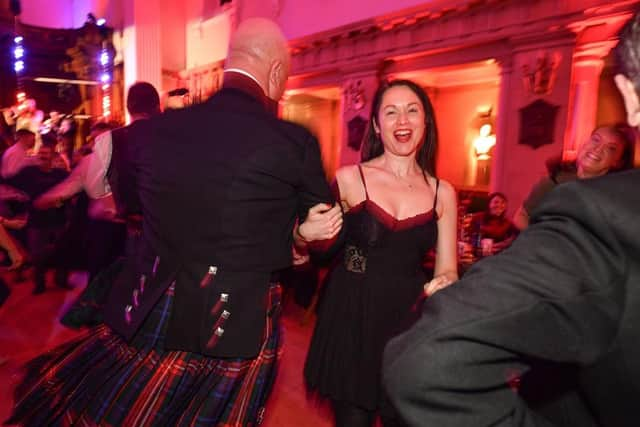Ceilidh dancing, Hogmanay and Burns’ Night all set to be recognised as cultural tradition under new UNESCO project
They are Scottish traditions and crafts which make up the historic foundations of cultural life north of the border.
Now Scottish cultural events and rituals such as Hogmanay, ceilidh dancing and Burns Night – as well as the arts of creating tartan and tweed – are set to be officially recognised as mainstays of British culture under a new initiative to protect cultural heritage.
Advertisement
Hide AdAdvertisement
Hide AdPantomimes, carol singing and other traditions – old and new – which are deemed to be an integral part of British culture will also be officially recognised after the Government ratifies the 2003 UNESCO Convention for the Safeguarding of the Intangible Cultural Heritage.


Other traditions which make up the UK’s many cultures and identity – from Highland dancing to bagpipe playing, cheese-rolling and the male voice choirs of the Welsh valleys – are expected to also be put forward for the UK-wide official inventory. These could also include traditions brought to the UK by immigrant communities, such as the Notting Hill Carnival and steel-drumming.
UK Government minister for Scotland, John Lamont, said: "Hogmanay, Burns Night and ceilidh dancing are Scottish traditions celebrated across the world and now we will be able to give them recognition alongside those from around the UK as part of this international convention.
"I encourage communities across the country to nominate their local traditions that will be ratified and help to preserve them for generations to come."
The UK Government said that by ratifying the convention, it would be able to recognise the UK’s most important crafts and traditions in the same way as physical heritage sites such as Edinburgh’s New Town and New Lanark are considered. Scotland has six World Heritage Sites recognised by Unesco.
The Government said the traditions were often also referred to as “intangible cultural heritage” or “living heritage” and were inherited from ancestors and passed on to descendants.
UK arts and heritage minister, Lord Parkinson of Whitley Bay, said: “The UK is rich in traditions, which are passed down from generation to generation. These crafts, customs, and celebrations have helped to shape our communities and bring people together, who continue to shape them in turn.
He added: “By ratifying this convention, we will be able to celebrate treasured traditions from every corner of the UK, support the people who practise them, and ensure they are passed down for future generations to enjoy.”
Advertisement
Hide AdAdvertisement
Hide AdA public consultation will run until the end of February for people to comment on the Government’s proposed approach to implementing the convention across the UK, including on how people will be able to nominate traditions, how they will be adjudicated, and any criteria that the nominated practices will need to meet before they are considered.
The UK Government has been working closely with the Scottish and Welsh governments and the Northern Irish Assembly, as well as the Crown Dependencies and Overseas Territories, to plan the project. The UK-wide inventory will be open for traditions to be nominated early next year.
Comments
Want to join the conversation? Please or to comment on this article.
